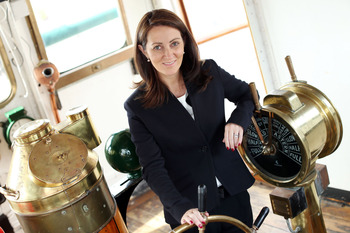Many shipping multi-nationals have charter platforms in offshore locations. Although such shipping organisations may pay significantly less tax, depending on the outcome of BEPS, it is likely to lead to increased pressure on companies to move away from (what may be seen to be) aggressive tax planning regimes. Is Ireland in a prime position to exploit a move onshore for this ship charter activity?

Yvonne Thompson
Ireland has specifically demonstrated its commitment to the aircraft leasing industry. It has ensured its favourable tax regime provides accelerated benefits to aircraft leasing companies, it has continuously broadened its double tax treaty network and it continues to support a pool of highly skilled, well-educated industry specialists. This goes part of the way to explaining why Ireland has long now been recognised as the leading location for aircraft leasing globally. Ireland could, in our view, also offer a favourable onshore alternative for shipping companies and their charter activity.
Ireland introduced a ‘tonnage tax’ regime in 2003. The regime allows companies to calculate their tax liabilities based on a nominal profit which is calculated by reference to the tonnage of the ship, rather than based on the actual profits generated by the company. While there has been some uptake to Ireland’s regime, Ireland competes with many other territories which also have tonnage tax regimes.
Between Ireland’s existing 12.5% rate of tax with its favourable tax depreciation regime (which is significantly accelerated vis-a-vis long life assets), and its Section 110 regime, which was expanded in recent years to allow for certain big ticket leasing items, Ireland already offers an attractive and tax efficient location for ship charter activities. Locating those charter activities in Ireland could be the complementary feature which differentiates and allows Ireland stand out from the crowd for those shipping multinationals.
The commitment to the Irish shipping industry is evident at all levels within Ireland’s political and economic circles. This includes the Irish Government’s development of the Irish Maritime Development Office (IMDO), which is Ireland’s national dedicated development, promotional and marketing agency for the shipping services sector. This, together with continued investment in the National Maritime College of Ireland and more recently, the announcement of the future development of an International Shipping Services Centre in Dublin which is expected to create 3,500 jobs along with a further 2,500 ancillary jobs, means that Ireland continues to welcome the shipping sector with open arms.
The tide may well be turning for the shipping industry globally. Ireland’s commitment to the aircraft leasing industry, and more recently the shipping industry, has been widely documented and its support is tangible through the various incentives and initiatives which have been implemented. Ireland is already among the top fifteen global locations for the shipping industry - and with the right infrastructure in place, we expect that this position should only increase and improve in the years to come.
